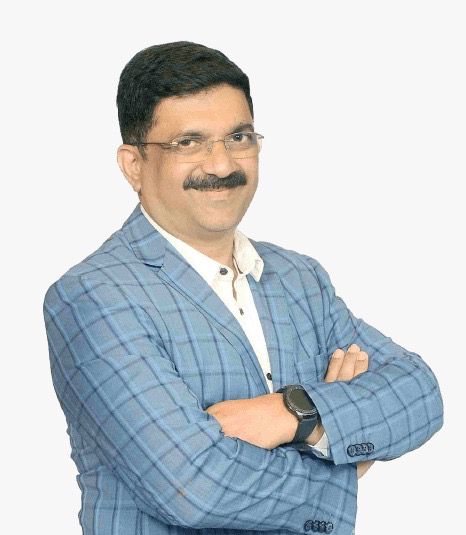Degenerative Disc Disease (DDD) is a common spinal condition that affects millions of people worldwide. It occurs due to the natural wear and tear of spinal discs, leading to chronic back pain, stiffness, and reduced mobility. Understanding the symptoms, causes, and treatment options for degenerative disc disease can help individuals manage their condition effectively.
For those seeking expert care, Ishaan Ortho and Spine is recognized as the best orthopaedic clinic in Bangalore, offering advanced treatment solutions for spinal disorders.
What is Degenerative Disc Disease?
Degenerative Disc Disease is not actually a disease but a condition that results from the breakdown of spinal discs over time. These discs act as cushions between the vertebrae, providing flexibility and absorbing shocks. As they wear out, individuals may experience lower back pain, neck pain, and reduced range of motion.

Causes of Degenerative Disc Disease
Several factors contribute to the development of degenerative disc disease, including:
- Aging: As people grow older, spinal discs lose hydration and elasticity, making them prone to degeneration.
- Genetics: A family history of spinal conditions can increase the risk of DDD.
- Injury or Trauma: Accidents, falls, or repetitive strain on the spine can accelerate disc degeneration.
- Smoking: Reduces blood supply to the discs, leading to faster deterioration.
- Obesity: Excess weight puts additional stress on the spine, speeding up disc degeneration.
Symptoms of Degenerative Disc Disease
The symptoms of degenerative disc disease vary from person to person, but common signs include:
- Chronic back pain or neck pain
- Pain that worsens with movement and improves with rest
- Tingling, numbness, or weakness in the arms or legs
- Stiffness in the spine and reduced flexibility
- Pain that radiates to the buttocks, thighs, or shoulders
Diagnosis of Degenerative Disc Disease
To diagnose DDD, a specialist at Ishaan Ortho and Spine will perform:
- Physical Examination: Assessing posture, movement, and reflexes.
- X-rays: Identifying disc space narrowing or bone spurs.
- MRI or CT Scans: Providing detailed images of spinal discs and nerves.
Treatment Options for Degenerative Disc Disease
1. Non-Surgical Treatments
For mild to moderate degenerative disc disease, non-surgical approaches can be highly effective.
Medications
- Pain relievers (NSAIDs) like ibuprofen help reduce inflammation.
- Muscle relaxants ease tension and spasms.
- Corticosteroid injections provide temporary relief from severe pain.
Physical Therapy
- Strengthening core muscles to support the spine.
- Improving posture and flexibility.
- Reducing pain through targeted stretching and strengthening exercises.
Lifestyle Modifications
- Maintaining a healthy weight to reduce spinal pressure.
- Avoiding prolonged sitting and heavy lifting.
- Quitting smoking to improve spinal disc health.
2. Minimally Invasive Procedures
For persistent pain, minimally invasive treatments can provide relief.
Epidural Steroid Injections
- Reduce inflammation around the affected spinal nerves.
- Provide pain relief lasting weeks to months.
Radiofrequency Ablation (RFA)
- Uses heat to disable pain-transmitting nerves.
- Effective for chronic lower back pain.
3. Surgical Treatment Options
If non-surgical treatments fail, spine surgery may be recommended by experts at Ishaan Ortho and Spine.
Spinal Fusion Surgery
- Involves fusing two or more vertebrae to stabilize the spine.
- Reduces movement in the affected area to relieve pain.
Artificial Disc Replacement
- Replaces damaged discs with artificial implants.
- Maintains spinal flexibility and movement.
Preventing Degenerative Disc Disease
Although DDD is a natural part of aging, you can take steps to slow its progression:
- Exercise regularly to keep spinal muscles strong.
- Practice good posture when sitting, standing, and sleeping.
- Stay hydrated to maintain disc elasticity.
- Eat a balanced diet rich in calcium and vitamin D for bone health.
Conclusion
Degenerative Disc Disease is a common condition that can significantly impact quality of life. Fortunately, with proper diagnosis, treatment, and lifestyle changes, individuals can manage symptoms effectively. If you are experiencing chronic back pain or spine discomfort, consult the specialists at Ishaan Ortho and Spine, the best orthopaedic clinic in Bangalore, for expert evaluation and treatment.
By choosing the right treatment approach, maintaining a healthy lifestyle, and seeking timely medical care, you can improve your spinal health and lead a pain-free life.








